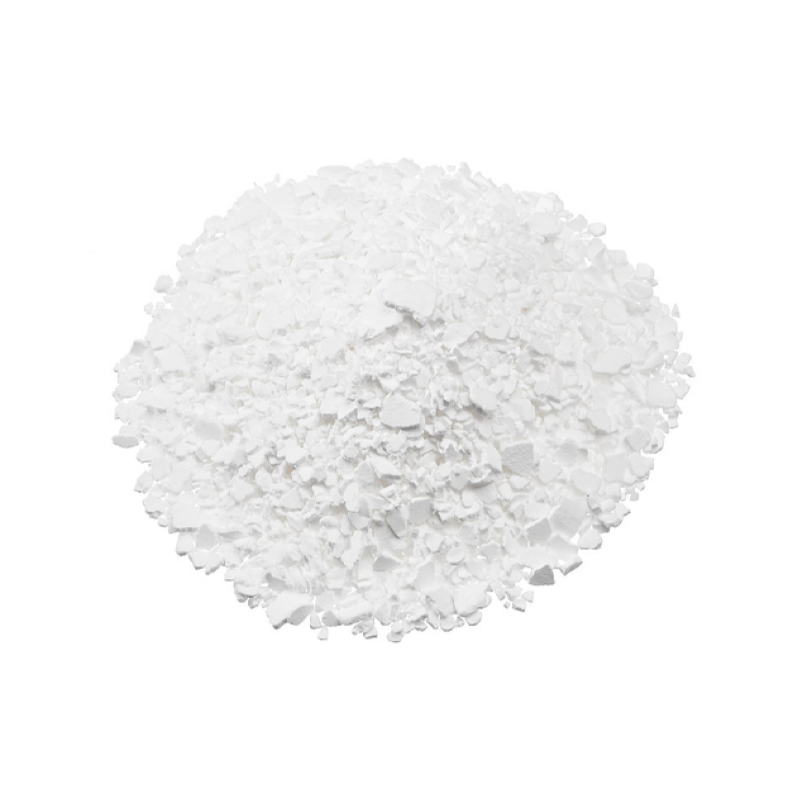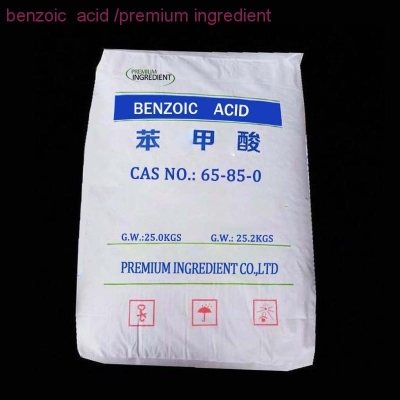-
Categories
-
Pharmaceutical Intermediates
-
Active Pharmaceutical Ingredients
-
Food Additives
- Industrial Coatings
- Agrochemicals
- Dyes and Pigments
- Surfactant
- Flavors and Fragrances
- Chemical Reagents
- Catalyst and Auxiliary
- Natural Products
- Inorganic Chemistry
-
Organic Chemistry
-
Biochemical Engineering
- Analytical Chemistry
- Cosmetic Ingredient
-
Pharmaceutical Intermediates
Promotion
ECHEMI Mall
Wholesale
Weekly Price
Exhibition
News
-
Trade Service
Vitamin D can regulate the innate immune system.
Previous studies have found that lower 25-hydroxyvitamin D concentrations in plasma are associated with an increased risk of respiratory infections in adults, children and infants.
However, the results of randomized controlled trials on the effect of vitamin D supplementation on respiratory tract infections are not the same.
The results of a meta-analysis combining these studies showed that vitamin D supplementation has a beneficial effect on respiratory infections.
To further verify this conclusion, this study started from another perspective-genetics, and integrated observational studies to analyze the relationship between low 25-hydroxyvitamin D and the risk of bacterial pneumonia.
Research methods: From the Copenhagen Urban Heart Study and the Copenhagen General Population Study, 116,335 Danish whites aged 20-100 were randomly enrolled and their plasma 25-hydroxyvitamin D decreased gene variants were classified as CYP2R1 (rs117913124, rs12794714 and rs12794714).
rs10741657), DHCR7 (rs7944926 and rs11234027), GEMIN2 (rs2277458) and HAL (rs3819817).
35,833 individuals with plasma 25-hydroxyvitamin D information were followed up for hospital diagnosis to obtain information about bacterial pneumonia (1981-2018).
In addition to information about vitamin D and bacterial pneumonia, the study also genotyped patients and included urinary tract infections, skin infections, sepsis, and gastroenteritis as negative controls; potential confounding factors include body mass index (BMI) , Smoking status, alcohol consumption, estimated glomerular filtration rate (eGFR), combined chronic diseases at baseline (diabetes, ischemic heart disease, chronic obstructive pulmonary disease, and cancer).
The study analyzed the relationship between vitamin D levels, genotypes and negative controls such as bacterial pneumonia and urinary tract infection, and corrected for confounding factors.
Research results During the 38-year follow-up, the researchers observed 6,342 (35,833, 17.
6%) cases of bacterial pneumonia in observational studies and 13,916 (116,335, 12.
0%) cases of bacterial pneumonia in genetic analysis.
In observational analysis, compared with individuals with 25-hydroxyvitamin D ≥25 nmol/L, individuals with <25 nmol/L have an increased risk of bacterial pneumonia.
The HR of bacterial pneumonia (after multivariate adjustment) is 1.
27 (95%CI: 1.
16-1.
40), similar results were also observed in further subdivision (see Table 1 for details).
However, no obvious association between 25-hydroxyvitamin D concentration and the risk of urinary tract infection, skin infection, sepsis or gastroenteritis was observed, and in individuals <12.
5 nmol/L and 12.
5-24.
9 nmol/L, respectively It was found to be associated with the risk of skin infections and sepsis.
Table 1.
The risk of bacterial pneumonia in individuals with different 25-hydroxyvitamin D levels (after multivariate adjustment).
In genetic analysis, only CYP2R1 rs12794714 and CYP2R1 rs10741657 alleles associated with 25-hydroxyvitamin D reduction are associated with bacteria The high risk of bacterial pneumonia is not related to other infections, and other genotypes are not related to the high risk of bacterial pneumonia or other infections.
Based on this finding, the researchers believe that the increased risk of bacterial pneumonia may be driven by CYP2R1, so the genetic risk of CYP2R1 genetic variants (rs117913124, rs12794714 and rs10741657) were scored.
In the unweighted genetic risk score, the HR of the CYP2R1 bacterial pneumonia risk score is 1.
03 (95%CI: 1.
01-1.
04) for each concentration range of 1,25-hydroxyvitamin D, and 1.
01 in the weighted genetic risk score.
(95%CI: 1.
00-1.
02) Research discussion CYP2R1 (rs117913124, rs12794714, and rs10741657) gene variants are associated with an increased risk of bacterial pneumonia, while DHCR7, GEMIN2 or HAL variants are not significantly correlated. One possible explanation is that, compared with other genes, CYP2R1 is more directly involved in the formation of 1,25-hydroxyvitamin D, but DHCR7 is involved in the metabolism of vitamin D, while the roles of GEMIN2 and HAL are unclear.
This study has two large-scale independent cohorts from the general population, random selection of study subjects, long follow-up time, no loss of follow-up, and a large number of individuals with bacterial pneumonia in the study (these cases are diagnosed by doctors with high efficiency and accuracy), etc.
The study rigorously and accurately verified the relationship between low vitamin D and the risk of bacterial pneumonia, but there are also problems such as the complexity of population stratification and genotyping that may be affected by the inclusion of a single Danish white group.
This study is based on observational studies and combined with genetic studies to verify that low vitamin D is associated with an increased risk of bacterial pneumonia, but there is no reliable evidence that vitamin D is associated with the risk of other organ-specific infections, indicating this correlation May be specific to respiratory infections (such as bacterial pneumonia).
Yimaitong compiled from: Çolak Y, Nordestgaard BG, Afzal S.
Thorax 2021;76:468–478.
Previous studies have found that lower 25-hydroxyvitamin D concentrations in plasma are associated with an increased risk of respiratory infections in adults, children and infants.
However, the results of randomized controlled trials on the effect of vitamin D supplementation on respiratory tract infections are not the same.
The results of a meta-analysis combining these studies showed that vitamin D supplementation has a beneficial effect on respiratory infections.
To further verify this conclusion, this study started from another perspective-genetics, and integrated observational studies to analyze the relationship between low 25-hydroxyvitamin D and the risk of bacterial pneumonia.
Research methods: From the Copenhagen Urban Heart Study and the Copenhagen General Population Study, 116,335 Danish whites aged 20-100 were randomly enrolled and their plasma 25-hydroxyvitamin D decreased gene variants were classified as CYP2R1 (rs117913124, rs12794714 and rs12794714).
rs10741657), DHCR7 (rs7944926 and rs11234027), GEMIN2 (rs2277458) and HAL (rs3819817).
35,833 individuals with plasma 25-hydroxyvitamin D information were followed up for hospital diagnosis to obtain information about bacterial pneumonia (1981-2018).
In addition to information about vitamin D and bacterial pneumonia, the study also genotyped patients and included urinary tract infections, skin infections, sepsis, and gastroenteritis as negative controls; potential confounding factors include body mass index (BMI) , Smoking status, alcohol consumption, estimated glomerular filtration rate (eGFR), combined chronic diseases at baseline (diabetes, ischemic heart disease, chronic obstructive pulmonary disease, and cancer).
The study analyzed the relationship between vitamin D levels, genotypes and negative controls such as bacterial pneumonia and urinary tract infection, and corrected for confounding factors.
Research results During the 38-year follow-up, the researchers observed 6,342 (35,833, 17.
6%) cases of bacterial pneumonia in observational studies and 13,916 (116,335, 12.
0%) cases of bacterial pneumonia in genetic analysis.
In observational analysis, compared with individuals with 25-hydroxyvitamin D ≥25 nmol/L, individuals with <25 nmol/L have an increased risk of bacterial pneumonia.
The HR of bacterial pneumonia (after multivariate adjustment) is 1.
27 (95%CI: 1.
16-1.
40), similar results were also observed in further subdivision (see Table 1 for details).
However, no obvious association between 25-hydroxyvitamin D concentration and the risk of urinary tract infection, skin infection, sepsis or gastroenteritis was observed, and in individuals <12.
5 nmol/L and 12.
5-24.
9 nmol/L, respectively It was found to be associated with the risk of skin infections and sepsis.
Table 1.
The risk of bacterial pneumonia in individuals with different 25-hydroxyvitamin D levels (after multivariate adjustment).
In genetic analysis, only CYP2R1 rs12794714 and CYP2R1 rs10741657 alleles associated with 25-hydroxyvitamin D reduction are associated with bacteria The high risk of bacterial pneumonia is not related to other infections, and other genotypes are not related to the high risk of bacterial pneumonia or other infections.
Based on this finding, the researchers believe that the increased risk of bacterial pneumonia may be driven by CYP2R1, so the genetic risk of CYP2R1 genetic variants (rs117913124, rs12794714 and rs10741657) were scored.
In the unweighted genetic risk score, the HR of the CYP2R1 bacterial pneumonia risk score is 1.
03 (95%CI: 1.
01-1.
04) for each concentration range of 1,25-hydroxyvitamin D, and 1.
01 in the weighted genetic risk score.
(95%CI: 1.
00-1.
02) Research discussion CYP2R1 (rs117913124, rs12794714, and rs10741657) gene variants are associated with an increased risk of bacterial pneumonia, while DHCR7, GEMIN2 or HAL variants are not significantly correlated. One possible explanation is that, compared with other genes, CYP2R1 is more directly involved in the formation of 1,25-hydroxyvitamin D, but DHCR7 is involved in the metabolism of vitamin D, while the roles of GEMIN2 and HAL are unclear.
This study has two large-scale independent cohorts from the general population, random selection of study subjects, long follow-up time, no loss of follow-up, and a large number of individuals with bacterial pneumonia in the study (these cases are diagnosed by doctors with high efficiency and accuracy), etc.
The study rigorously and accurately verified the relationship between low vitamin D and the risk of bacterial pneumonia, but there are also problems such as the complexity of population stratification and genotyping that may be affected by the inclusion of a single Danish white group.
This study is based on observational studies and combined with genetic studies to verify that low vitamin D is associated with an increased risk of bacterial pneumonia, but there is no reliable evidence that vitamin D is associated with the risk of other organ-specific infections, indicating this correlation May be specific to respiratory infections (such as bacterial pneumonia).
Yimaitong compiled from: Çolak Y, Nordestgaard BG, Afzal S.
Thorax 2021;76:468–478.







